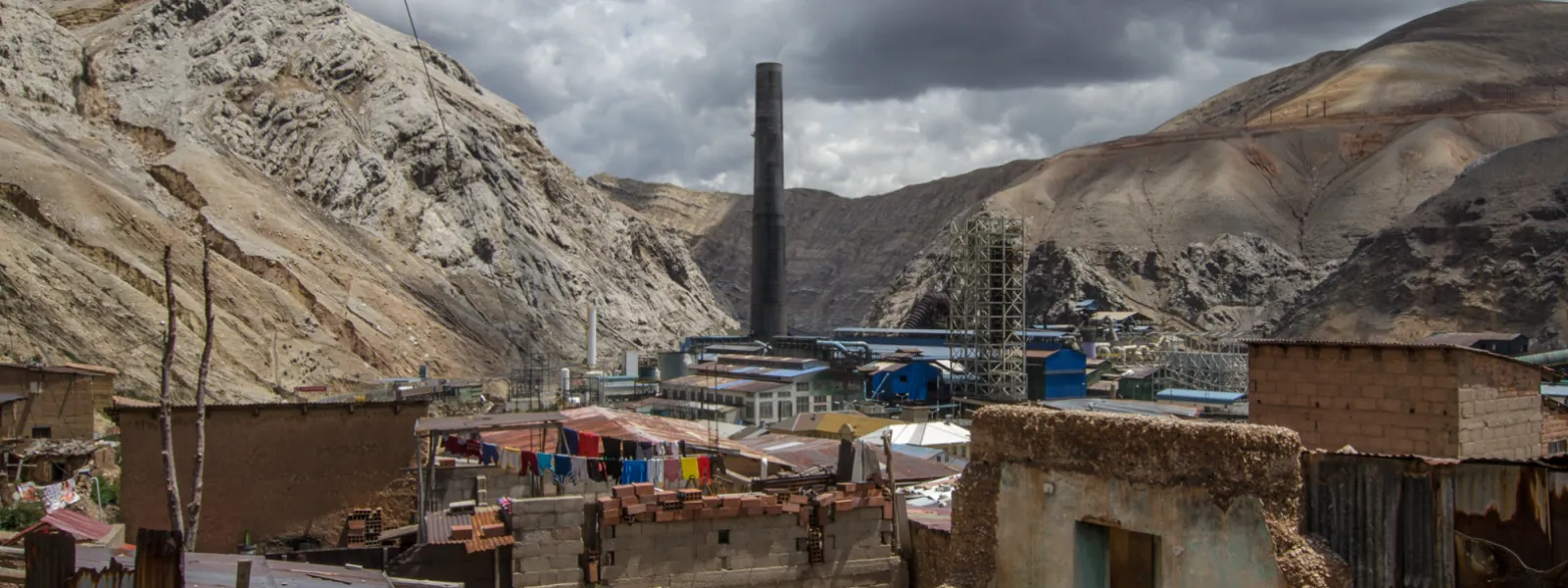
With La Oroya case, the Inter-American Court may set a key precedent for protecting a healthy environment in Latin America
Photo: Mitchell GilbertOn October 12 and 13, the international court will hear the case of people affected by toxic pollution in La Oroya, Peru. Beyond reestablishing the rights of the victims, the court’s eventual decision marks an historic opportunity to strengthen the protection of the right to a healthy environment in the region and to encourage States to adequately supervise corporate activities.
Montevideo, Uruguay. On October 12 and 13, the Inter-American Court of Human Rights will hear the case of residents from La Oroya, Peru, whose fundamental rights have been violated for decades due to heavy metal contamination from a metal smelting complex.
The hearing will take place during the 153rd Session of the Court, to be held October 10-21 in Montevideo, Uruguay.
Last October, 15 years after the international lawsuit against the Peruvian State was filed, the Inter-American Commission on Human Rights—in it’s decision on the merits of the case—established the Peruvian government’s international responsibility in the violation of the human rights of the residents of La Oroya, and referred the case to the Inter-American Court.
At the hearing next week, as part of the process of drafting their ruling, the judges of the court will hear from witnesses, experts, and victims, as well as from State representatives.
As organizations that have legally represented and accompanied the group of victims since the beginning of the case, the Interamerican Association for Environmental Defense (AIDA) and the Pro Human Rights Association (APRODEH) will bring to the court strong arguments, supported by legal and scientific evidence, to defend the rights of the affected people.
After a decades-long search of justice, the case is important not only for the community of La Oroya, but for all people affected by corporate activities across the continent.
In addition, the case is representative of a serious political, social and environmental situation that has not been considered by national, regional and international politics. The current conditions prevent the citizens of La Oroya from having healthy prospects for the future. There exists a real need for justice and mobilization to generate a strong recognition of economic and environmental alternatives for the direct and indirect victims.
Liliana Avila, senior attorney at AIDA, explains the context of the case and emphasizes the importance of a favorable and forceful decision by the court:
"The La Oroya case before the Inter-American Court puts an end to more than 20 years of waiting in the search for justice and reparations for those whose lives were drastically changed by historic exposure to toxic contamination.
It is a milestone for the Inter-American Human Rights System because it will be one of the first cases to centrally address the indivisible relationship between a healthy environment and other fundamental human rights such as life, health and personal integrity.
It constitutes a unique opportunity to set a regional and global precedent for the protection of the right to a healthy environment and compliance with the obligations of States to adequately supervise corporate activities, as well as to guarantee the special protection of children, girls, women, the elderly and other vulnerable groups.”
Gloria Cano Legua, executive director of APRODEH, refers to the urgency of a decision that grants justice and reparation to the people of La Oroya:
"The victims have had to see how the State, through various governments, has disregarded its obligations, while their health problems have worsened. The indifference and sometimes hostility with which they have been treated has offended their dignity".
PReSS CONTACTS:
Víctor Quintanilla (AIDA), [email protected], +525570522107
Gloria Cano Legue (APRODEH), [email protected], +51 964 809 193
Christian Huaylinos Camacuari (APRODEH), [email protected], +51 959 789 232
